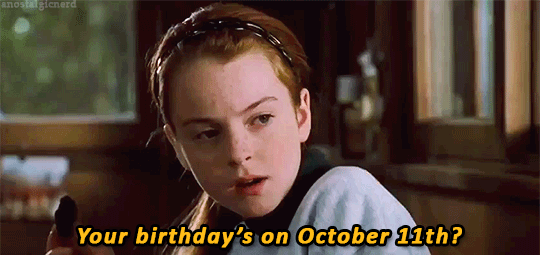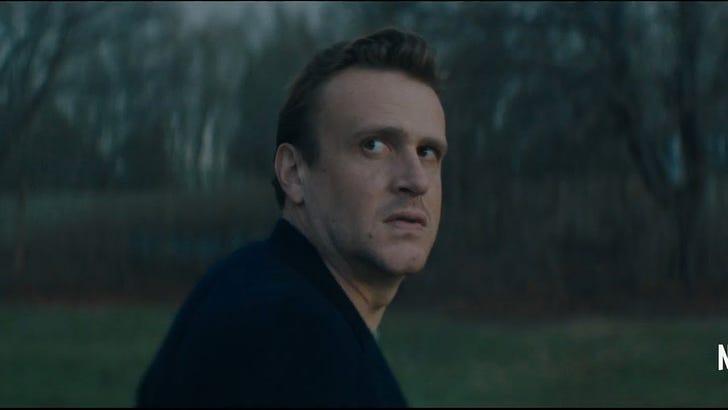Perhaps you noticed a bevy of announcements and updates last weekend from Netflix as part of their “Tudum” day. (If that nonsense word confuses you as much as it did for me, it’s the phonetic spelling of the sound the Netflix logo makes.) They’re trying to reverse engineer the kind of hype machine from things like Disney’s D23 or the DC Fandome to mixed effect.
The biggest imperative for the streaming giant, it seems, is to create franchisable material rather than expensive one-off features requiring engagement anew with marketing. I wrote extensively about the corporate “vibe shift” underway at Netflix in the culmination of my Decider series “Smells Like ‘10s Spirit” two years ago, and it was also the context hanging over my recent Crooked Marquee analysis of Annapurna Pictures’ rise and fall. It feels like we could be at the end of this era…
…and I still think they might make a scapegoat out of White Noise (innocent) or Bardo (deserving) if one of these expensive auteur projects bombs with users on the platform. Exciting times!
The big movie dropping on Netflix this week is, of course, the Ana de Armas-starring Marilyn Monroe film Blonde. I seem to be on the more positive end of notices for the film (you can read my review here), but every interview with filmmaker Andrew Dominik makes me regret this praise.
The new Netflix film you should be watching this weekend is Athena, which I raved about over at The Playlist out of Venice. Here’s a bit of what I said there:
Before anyone can catch their breath, [director Romain] Gavras is over ten minutes into Athena … and still has yet to have a single cut. The film is prodigious in its use of single takes to convey the immersive immediacy of characters trapped in a fight for their very lives and livelihoods. This is not just flashiness for the pure exaltation of the filmmaker, though the astonishingly acrobatic camerawork of cinematographer Matias Boucard deserves serious plaudits for its gravity-defying leaps. The oners are deeply connected to the inescapable nature of the cop-civilian conflict. How fitting in a neighborhood named for the god of such exploits.
This is an extraordinary work of propulsive, urgent cinema that is capable of making you wonder, “Wait, how did they do that?!” Bilge Ebiri found out for Vulture, and one of the things I found the most interesting is that the medium inspired their message. As Gavras told him, “We were thinking we needed to start really strong because even when I watch a Netflix film, if it’s not interesting in the first five minutes, I’m going to go away. When you do a cinema film, you can ease people in because they’re not going to leave after minute ten or 15.”
Whether designed for the streamer or for theaters, Netflix has at the very least achieved the great task of elevating films like Athena out of arthouses and putting them before a global audience. Whether the platform can market them effectively and draw a large crowd is still a bit of an open question. But, at the very least, the following Netflix originals are a testament to the vast variety of films they’ve chosen to elevate to their massive subscriber base — some of which wouldn’t exist without the platform.
These more under-the-radar titles probably won’t provide the franchise the service is looking for. Yet these originals are a testament to a unique moment in cinematic history that we may well look back on someday with rose-colored glasses.
OK, so maybe a film that literally won the Academy Award for Best Documentary Feature doesn’t exactly qualify as “under-the-radar.” Nonetheless, this is a hearty endorsement for American Factory, Steven Bognar and Julia Reichert's extraordinary observational chronicle of a Rust Belt factory shifting ownership into Chinese hands. This film locates the micro-level expressions of the macro-level trends that pundits love to bloviate about on cable news. It translates giant global changes into their most personal level, zooming in on tiny moments and making them register on the Richter scale. I can easily see a world where we look back and see this prescient work as the cinematic canary in the coal mine for Sino-American relations.
Netflix funded what looks to be the last joint Coen Brothers movie now that they’ve gone their separate ways! The Ballad of Buster Scruggs totally flew under the radar as the company pushed Roma as their big awards horse (and couldn’t even beat G*een B*ok). Where some saw repetitiveness in this anthology film of six Western-set stories, I saw great skill and reflectiveness. A greatest hits album from two of our greatest living filmmakers … sheesh, yeah, who’d want to watch that? If you’re looking for the standout of the six shorts in this compendium, it’s handily “The Girl Who Got Rattled.”
If you’re a fan of high-concept sci-fi set in a recognizable reality, then The Discovery will be very much up your alley. Charlie McDowell’s humanistic triumph follows the fallout of the titular even when a scientist definitively proves the existence of an afterlife — a finding that drives a spike in the suicide rate. The tone varies in the world of those left behind as seen through the eyes of an aching soul played by Jason Segel. It’s part thriller, part romance, part heady drama. But above all, this is a deep, probing look at the mysteries of life people are forced to confront when they possess the certainty about death that currently eludes us.
“I think people have one age their whole life,” observes the free-wheeling 22-year-old Parisian bombshell Sofia. Some people stop growing up past a certain age, while other people are waiting to catch up with the age of their soul. An Easy Girl follows the anguish of 16-year-old Naïma, an insecure adolescent drawn into Sofia’s orbit, as she desperately tries to fight the nagging sensation that she’s an old soul. “Being free requires work sometimes,” Naïma is told when she cannot seem to muster Sofia’s seductive allure, though such sentiment is cold comfort as she tries effortfully to conjure what her companion can do seemingly effortlessly. This coming-of-age story would fit nicely in my “Dysphoria” list from the summer. It’s a tough lesson in how sometimes you don’t need to catch up with the world — time has to catch up with you.
We’ve all seen some version of the Cyrano story: an articulate out-group member uses their talents to seduce a love interest on behalf of an in-group member who lacks such skill, allowing a sort of vicarious triumph. The Half of It stages the classic drama in contemporary halls with a twist of same-sex attraction as the bookish Ellie professes her love to the deacon’s daughter Aster by ghostwriting love letters for jock Paul. Writer/director Alice Wu isn’t just settling for lazy representational victories and leaving it at that. The Half of It is a film rooted in the real pains of adolescence, aching with the sincerity and grandiosity that its characters contain. She’s continually pushing past the obvious set-ups and dwells in the moments of quiet self-doubt that too many films of its ilk elide.
It seems like every year, the Internet rehashes its debates about whether Method acting is good or bad … and it’s usually thanks to a press tour where an actor *cough Jared Leto cough* exhibits they have no idea what those principles actually mean. A far more interesting object to debate about this topic would be Chris Smith’s documentary Jim & Andy: The Great Beyond. This marvelous document splices together behind-the-scenes footage shot by Jim Carrey as he donned the persona of Andy Kaufman in Man on the Moon and the star’s reflections on the shoot years later. Universal decided they could not release the footage contemporaneously because, Carrey notes, they didn’t want him to look like an asshole. The tapes are better seen now with the benefit of retrospection as Carrey enters into a conversation about what lengths an actor can — or should — go to unlock a performance.
Infertility affects roughly one in every five women, and yet it’s still treated like too inappropriate a subject for public discussion. Tamara Jenkins’ Private Life knows it’s got to some taboos to bust. But she never rests on her laurels. This is not a film that’s only loud because its topic of a middle-aged couple trying to conceive is engulfed by a culture of silence. It’s loud because it has a lot to say about pregnancy, fertility, and family. Paul Giamatti and Kathryn Hahn are dynamic dynamos as they chart the high highs and low lows of infertility’s ravages, excelling at both pithy comedy and personal tragedy. (Also, New Yorkers, this is one of those movies that gets it on local texture. You’ll feel SEEN!)
I love a good political thriller-cum-morality play, and 7 Prisoners really hit the spot for me. This Brazilian fable about a young boy who escapes modern human slavery by going to work for his captors is a dense, knotty weighing of our current economic arrangements. It asks tough questions as it zips by in riveting fashion. And, to its credit, Alexandre Moratto’s film feels like a full meal … but is only 90 minutes long!
Did you know Netflix released a movie by the director of The Bourne Ultimatum in 2018? (A big year where they buckled under the weight of a lot of high-profile releases!) 22 July starts with a ripped-from-the-headlines tale: the 2011 massacre that took the lives of 77 Norwegian youth at summer camp. But while the striking violence is depicted with the cinematic verve you might expect from a Paul Greengrass film, it makes a hard pivot into a courtroom drama as the shooter’s legal battle quite literally puts white nationalism on trial. It’s a startling look inside a story that feels all too relevant to a world where ethno-nationalist violence is becoming a standard event.
You can always keep up with my film-watching in real-time on the app Letterboxd. I’ve also compiled every movie I’ve ever recommended through this newsletter via a list on the platform as well.
I’ve found the lead-up to the release of Bros today somewhat cringe and self-congratulatory. But this interview Billy Eichner did with the great Sam Fragoso was quite good and did more to excite me for the film’s release than anything thus far.
If you’ve ever wondered about the 35mm fetishism of New York cinephiles, The New York Times takes a look in the projection booth at those practitioners of a lost art form.
For grammar nerds, here’s a real treat: Chris Stanton’s “An Apology From the Missing Comma in Don’t Worry Darling” for Vulture.
I regret to inform you that Hocus Pocus 2, out today on Disney+, is bad. Here’s my review for The Playlist.
A new release you absolutely should make time for, however, is Anna Rose Holmer and Saela Davis’ extraordinary contemporary Irish fable God’s Creatures. It’s out today on VOD and in select theaters — don’t miss it. And pay close attention to the sound design, which is marvelous.
I also had the distinct pleasure of chatting with the film’s stars, Emily Watson and Paul Mescal (!!!) last week. You can read our conversation at Slant Magazine.
Also, if you haven’t voted in the polls sent out on Sunday, please do so! They will close at the end of the week.
Back to you next week with The Upstream!

Yours in service and cinema,
Marshall














